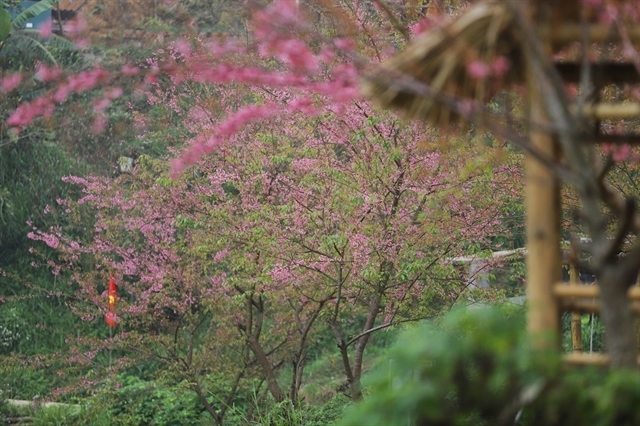 Features
Features
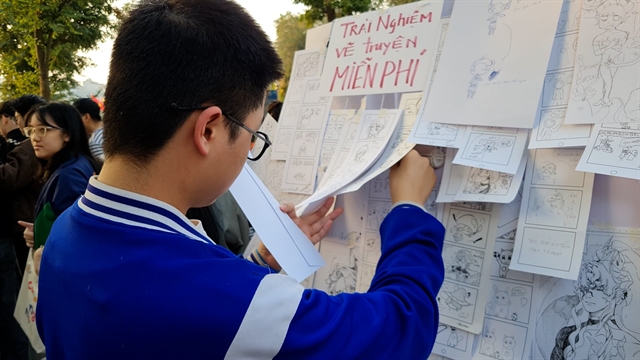
Prior to and after the nation’s August Revolution in 1945, the Communist Party of Việt Nam and President Hồ Chí Minh encouraged and persuaded many intellectuals and talented artists to work for the revolutionary cause.
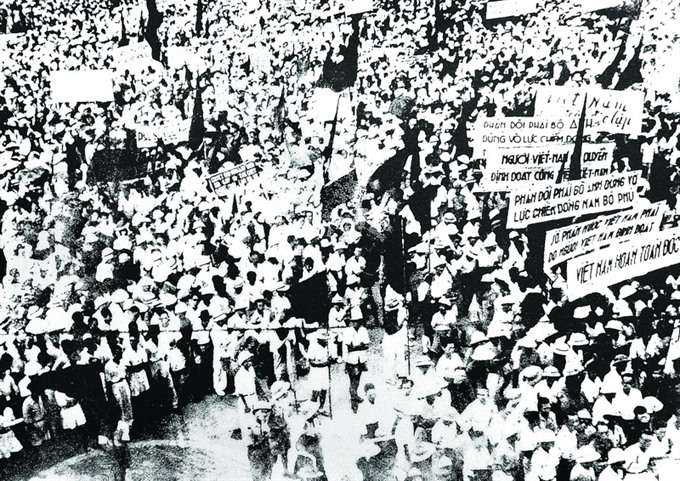 |
| United for a cause: Vietnamese people all over the country took part in the August Revolution. Photo hiec.org.vn |
by Thu Mai
Prior to and after the nation’s August Revolution in 1945, the Communist Party of Việt Nam and President Hồ Chí Minh encouraged and persuaded many intellectuals and talented artists to work for the revolutionary cause.
In the South, many intellectuals who had served the abdicated Emperor Bảo Đại played a role in the revolution.
In his book Địa Chí Văn Hóa TP HCM (Geography and Culture of HCM City), released by the HCM City Publishing House in 1987, revolutionary and historian Trần Văn Giàu noted that “southern intellectuals left their properties to stand by poor farmers and workers in the national revolution movement”.
"In the 1920s and 1930s, Sài Gòn’s three renowned intellectuals, Nguyễn An Ninh, Thiện Chiếu and Trần Hữu Độ followed Marxism-Leninism under the leadership of the Communist Party, seeing it as an indispensable rule.”
Giàu was the chairman of the Việt Minh (Việt Nam League for Independence) Committee of the South and led the takeover of Sài Gòn on August 25 following the August 19 Revolution in Hà Nội.
On the afternoon of August 25, on behalf of the Việt Minh Committee of the South, Giàu declared at the Hôtel de Ville of Sài Gòn (now the headquarters of the HCM City People’s Committee), before several thousand residents: “Việt Nam is an independent country.”
Born to a well-off family in Long An Province in 1911, Giàu was sent to study in Toulouse, France, where he earned a doctorate in history.
He studied at the Oriental University in Moscow before returning to Sài Gòn to rebuild the underground Indochinese Communist Party’s (ICP) Regional Committee in 1932, and a year later, became the head of the Committee. He was later arrested by the French.
After the revolution, Giàu took the post of chairman of the Anti-French War of Resistance Committee of the South when the French returned to reoccupy the country.
Before the revolution, intellectuals in Sài Gòn used newspapers, music and theatre to educate and encourage people to join the fight.
Many articles on patriotism, self-reliance, inner strength and revolutionary spirit, written by Trần Huy Liệu and Huỳnh Văn Tiểng in Đông Pháp Thời Báo (Le Courrier Indochinois) and Thanh Niên (Young People) newspapers, influenced many readers.
Musician Lưu Hữu Phước composed songs featuring national heroes and historical events, including Ải Chi Lăng (The Chi Lăng Pass), Bạch Đằng Giang (The Bạch Đằng River).
His songs encouraged Vietnamese people, particularly the young, to rise up and join the fight against foreign domination.
Phước was one of the first members of the Hồ Chí Minh Young Pioneers Organisation under the Regional Party Committee, established in May 1945.
The organisation was led by intellectuals from high-ranking families, such as engineer Kha Vạn Cân, doctor Phạm Ngọc Thạch, architect Huỳnh Tấn Phát, and lawyer Thái Văn Lung.
Dozens of streets in HCM City were named after these revolutionaries.
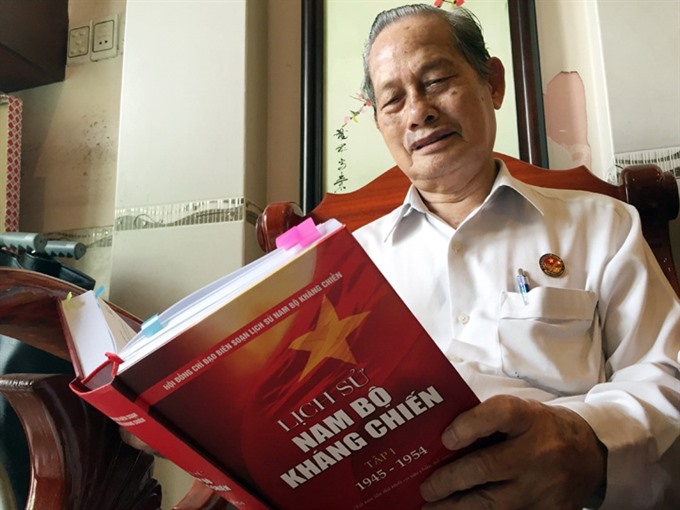 |
| An important read: Revolutionist Nguyễn Trọng Xuất. Photo nhandan.com.vn |
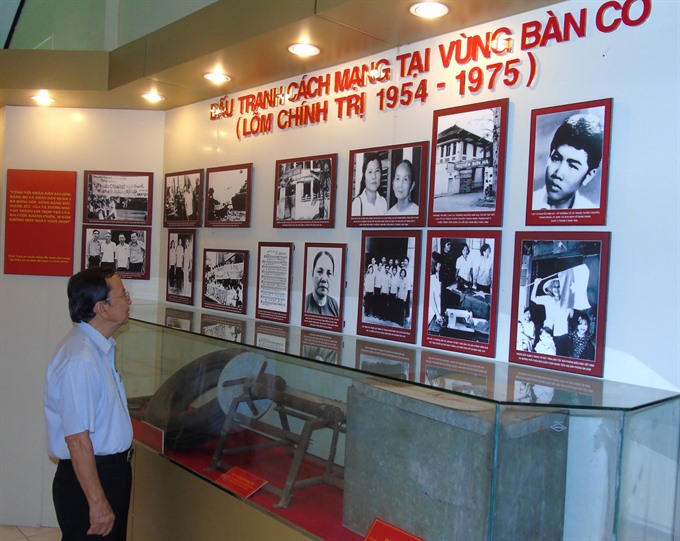 |
| Pieces of history: Objects, photos and documents on the August Revolution in 1945 are on display at revolutionary Nguyễn Trọng Xuất’s house on Cao Thắng Street in HCM City’s District 3. The house is now a relic site managed by the city government. Photo Lê Anh Vũ |
Xuất joined the organisation in 1945 when he was 13 years old.
After the revolution, he took part in the Southern Resistance War between 1945 and 1954.
In his interview with Nhân Dân (The People) newspaper, Xuất said: “The Southern intelligentsia were a motive force in the pre-period of national revolution. Most of the intellectuals, including students, were patriots.”
“The participation of great intellectuals was one of the reasons the southern people followed and supported the resistance,” he said.
His house on Cao Thắng Street in District 3 is a relic site displaying objects, photos and documents on the revolution, managed by the city government.
Xuất is the head of the editorial board of Lịch Sử Nam Bộ Kháng Chiến (The History of South Việt Nam’s Resistance War), a collection of two books featuring revolutionary activities in the South. They were written and edited by 68 historians, cultural researchers, authors and revolutionaries.
The books are about historic events that occurred in the southern region between 1945 and 1975 and feature soldiers and people devoted to the causes of national independence and reunification.
The book, Lịch Sử Nam Bộ Kháng Chiến Chống Pháp (The History of South Việt Nam’s Resistance War against French Colonialists), won the Trần Văn Giàu Prize in 2006.
In 2010, the book Lịch Sử Nam Bộ Kháng Chiến Chống Mỹ (The History of South Việt Nam’s Resistance War against American Invasion) also received the prize.
The annual prize was instituted in 2002 by the late Prof Giàu and his family to encourage and honour research on Vietnamese history and culture. Both books have been reprinted by the National Politics Publishing House.
“I’ve read Lịch Sử Nam Bộ Kháng Chiến written and edited by Xuất and his staff. I like books on historical documents which are valuable for people, particularly the youth,” said Dr Nguyễn Phúc Nghị, a resident of HCM City’s Phú Nhuận District.
Nghị witnessed the revolution when he was a boy living in Hà Nội, and took part in the the war of resistance against the French.
“The August Revolution changed and improved Xuất and many intellectuals in Việt Nam in general and the southern region in particular,” said the 85-year-old.
“The event paved the way for Vietnamese intelligentsia to be involved and play an important role in the cause for national liberation in the following years, including the Điện Biên Phủ victory which ended the nine-year war against the French, and the April 30 triumph that ended the 21-year war against American imperialism.” VNS
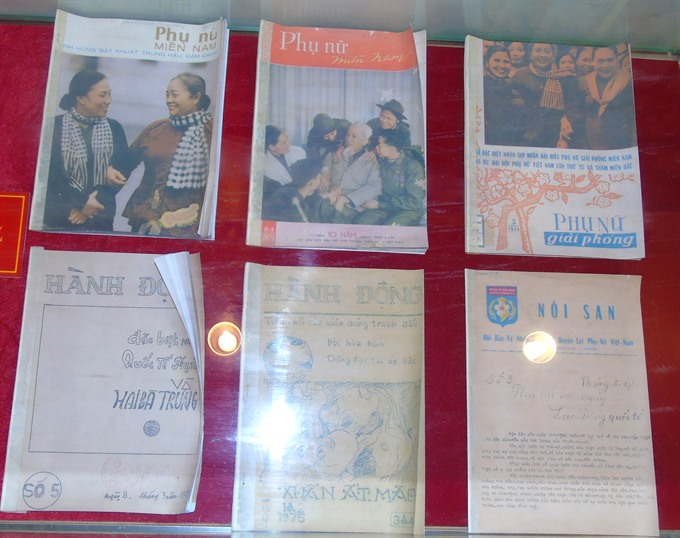 |
| Inspiring news: Articles on patriotism, self-reliance, inner strength and revolutionary spirit, in Thời Báo (Le Courrier Indochinois) and Thanh Niên (Young People) newspapers, influenced many readers. Photo Lê Anh Vũ |